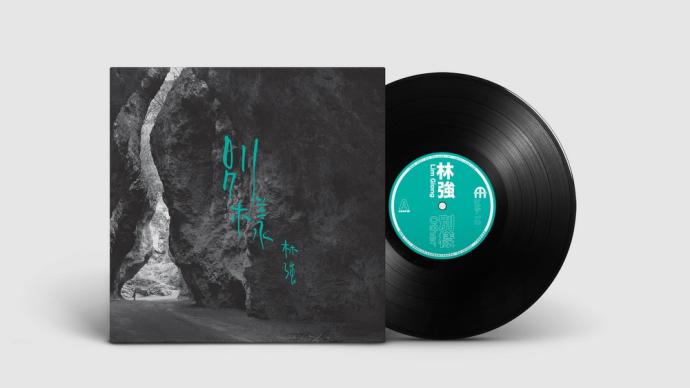
Lin Qiang's footsteps have been written in many articles. He was briefly a rock singer singing Hokkien ("Go Forward" [1990], "Spring Breeze" [1994], "Entertainment World" [1996], and was once a familiar face in Hou Hsiao-hsien's films ("Dream of Play") Life" [1993], "Good Boys and Good Girls" [1995], "Goodbye to the South, the South" [1996]). After that, he stopped acting and continued to work as a composer, making several film scores for Hou Hsiao-hsien, Jia Zhangke also likes to look for him. When Bi Gan asked him to collaborate for "Roadside Picnic", Lin Qiang was more than just a soundtrack master. The years were deposited on him - the golden age of Taiwanese pop music, the rebellious and confused youth, Civilian life full of details, old days of watching movies. 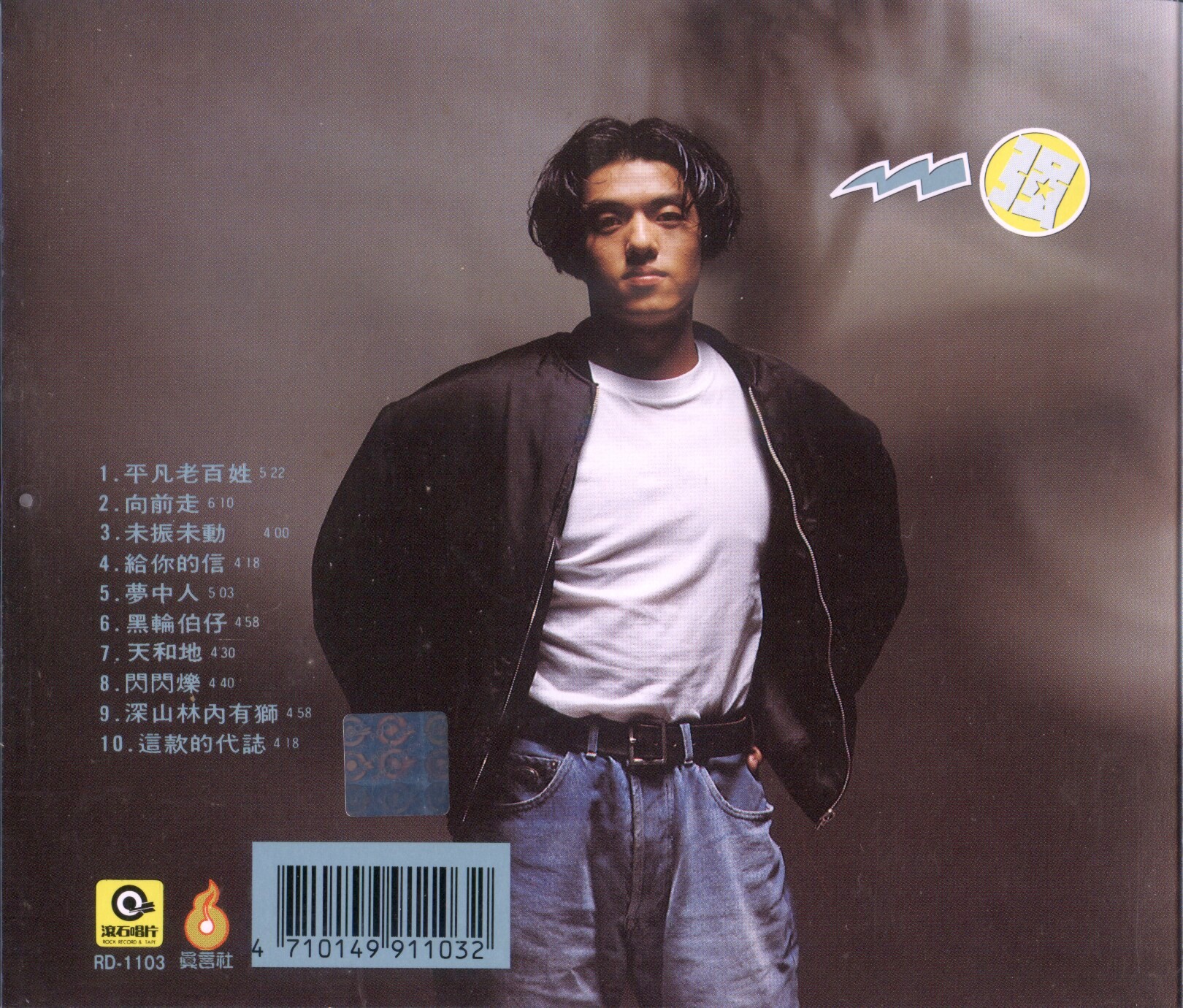
As a musician, Lin Qiang has an ability. His scores fall like new rain into the dust, sampling inflections from familiar situations, and melodies evoking deep memories. Lin Qiang is good at using electronic music, claiming that his logic is poor, and his music is mostly based on feeling. He does not insist on writing impressive themes, so that the audience will remember the scene from then on when they hear the music. If the movie is the reproduction of a dream, Lin Qiang's music makes the audience fall into the next level of dream, using crystallized phrases and ambiguous rhythms as clues to connect reality, memory and the subconscious world.
Lin Qiang does not have many personal musical works. Recently he released an electronic music EP called "Different", which consists of three pieces. "Water Wave Stone" takes place in milky white water, the arcs of the synthesizer sound waves are interlaced, the mussels in the underwater world open and close, and the swimming fish spit bubbles. "Moon Tour" lays on the loose rhythm of gudonggudong and has a random dream, like a random dream in the rapid eye movement period, with clear piano sounds flashing in the dream. "Overlapping" is like the beginning of a good story with a beginning and an end. However, when the narrator really tells the story, it is just toneless and meaningless, like the babble in a drama, it turns out to be another dream.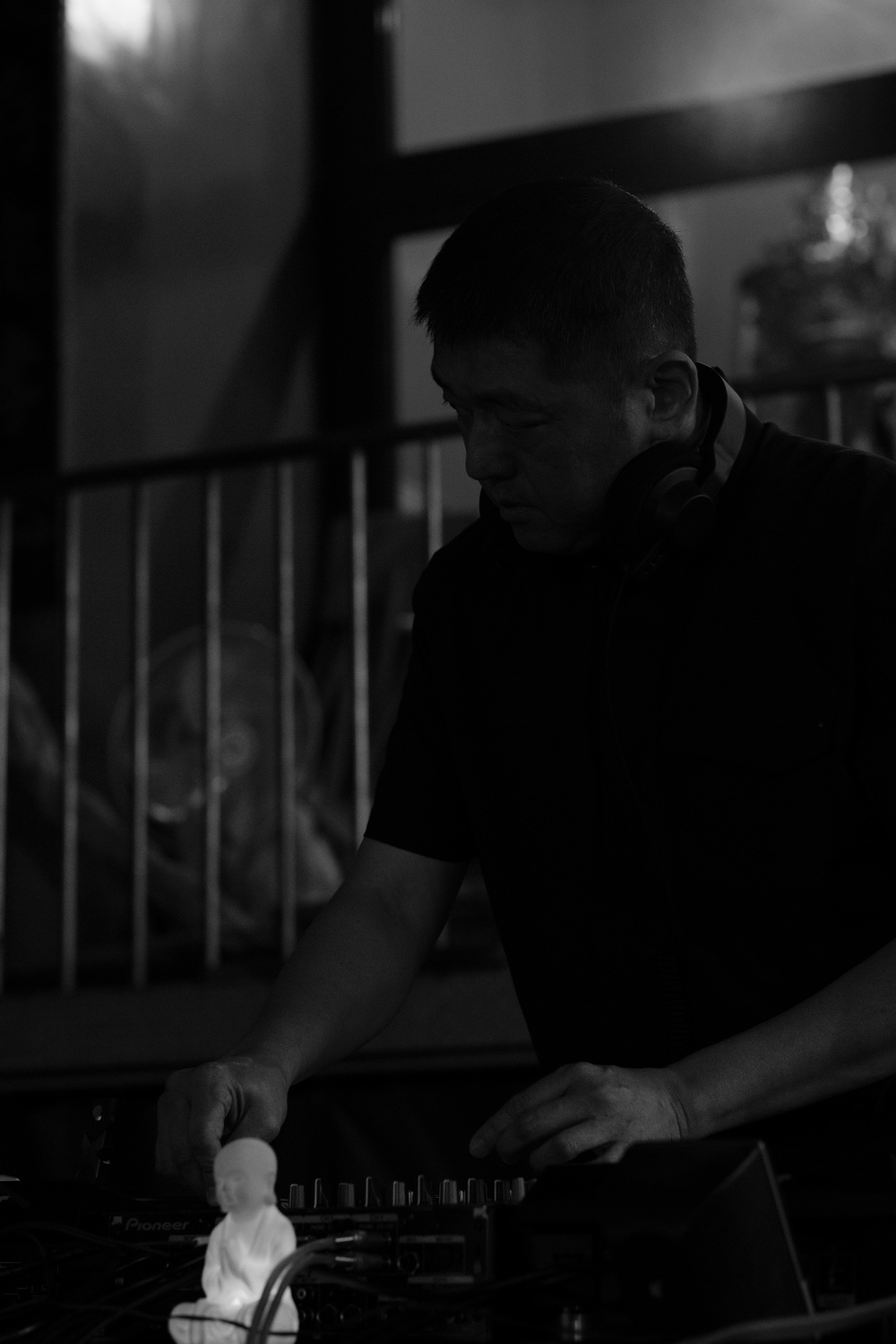
Lin Qiang: I was invited by a partner of "Other Music" and asked me if I would like to cooperate with their record label, bié Records. After I agreed, I started to think about how to do it, and also some musical ideas that I used to write memos.
The Paper: Your creations are created from scratch and completely reflect yourself. Do you resist this level of self-disclosure?
Lin Qiang: People's imaginations are diverse, revealing oneself is one of them, and it depends on one's own choice. Music comes from the heart and only reflects a certain part of me.
The Paper: People who have heard this work will have their own feelings, but it is difficult to express and discuss. When you made this music, did you think about communicating with the listeners and getting their feedback?
Lin Qiang: Of course it's good to have the opportunity to communicate, but I don't expect feedback from listeners. It's fine to meet and not talk about music, just life.
The Paper: What do you think you can tell listeners about this work, such as the description of emotions, the scene of creation, the source of some samples, or special creative techniques?
Lin Qiang: I have only started using hardware synthesizers in recent years. The basic structure of this piece is to use Elektron's Digitakt for arranging, and then go to the computer for fine-tuning. I also use my home Yueqin and Sanxian and my voice to record it on the computer. Do the mix again.
The Paper: For many people, this work is also "forgotten". I found a lot of things at the moment of listening, and the moment I pressed the stop button, they disappeared, maybe I went into the subconscious. For you, you will give it a specific image through the synaesthesia of the sound. , so that it can always exist and continue to grow?
Lin Qiang: I can't control other people's hearing. I'm very grateful to others if they want to hear it. As for whether it will continue to grow, that is the relationship between the work and others, I have no such intention or idea.
The Paper: Is there a fundamental difference between creating music for someone else's work and creating it yourself?
Lin Qiang: There will be a lot of compromises, communication and revisions for other people's music. Your own works will have early thinking, and then you can freely develop according to your own imagination.
The Paper: I don't know if you are willing to answer this question... Have you ever had a soundtrack that you felt was a failure? If so, why?
Lin Qiang: Yes, after listening to it after a few years, I find it difficult to listen to it. I shouldn't use that tone or be too contrived.
The Paper: Would you re-watch a movie with a soundtrack? Are there any works that come up with the idea of changing the soundtrack when you look back?
Lin Qiang: Yes, but it's too late! It's all been released, or made into DVD or on the Internet.
The Paper: From your first solo album to the present, in addition to the change in musical style, have you changed your creative philosophy? When you sense change is about to happen, what state are you in?
Lin Qiang: There must be, I hope there will be changes, but what will it become? Not sure myself.
The Paper: If you are used to expressing in music for a long time, will it degrade the ability to express in language and writing? Will the way of looking at things gradually tend to be more obscure and embrace the unknown way of making music?
Lin Qiang: It should be. It has not been expressed in words or words in the media for a long time. In the past, I often regretted saying the wrong thing. As a musician, I should express it in music. Music cannot be seen or touched, and its essence is abstract. Obscure or explore, is a choice.
The Paper: You said that you make music by feeling, and thinking logically is almost the same. Classical music is very logical, will you learn that logic out of curiosity, and then break through the inertial way?
Lin Qiang: No, there is still a lot to learn in life, such as changing my arrogant attitude.
The Paper: For you, do you think music is more of a transcendental experience, or is it an acquired tool that can be used to describe what you see and feel?
Lin Qiang: All right. I prefer to use music to cure my illnesses, such as being angry and angry, or having stomach pains, colds, fever, and dizziness. I tried once or twice, but it didn't work, so I had to take medicine.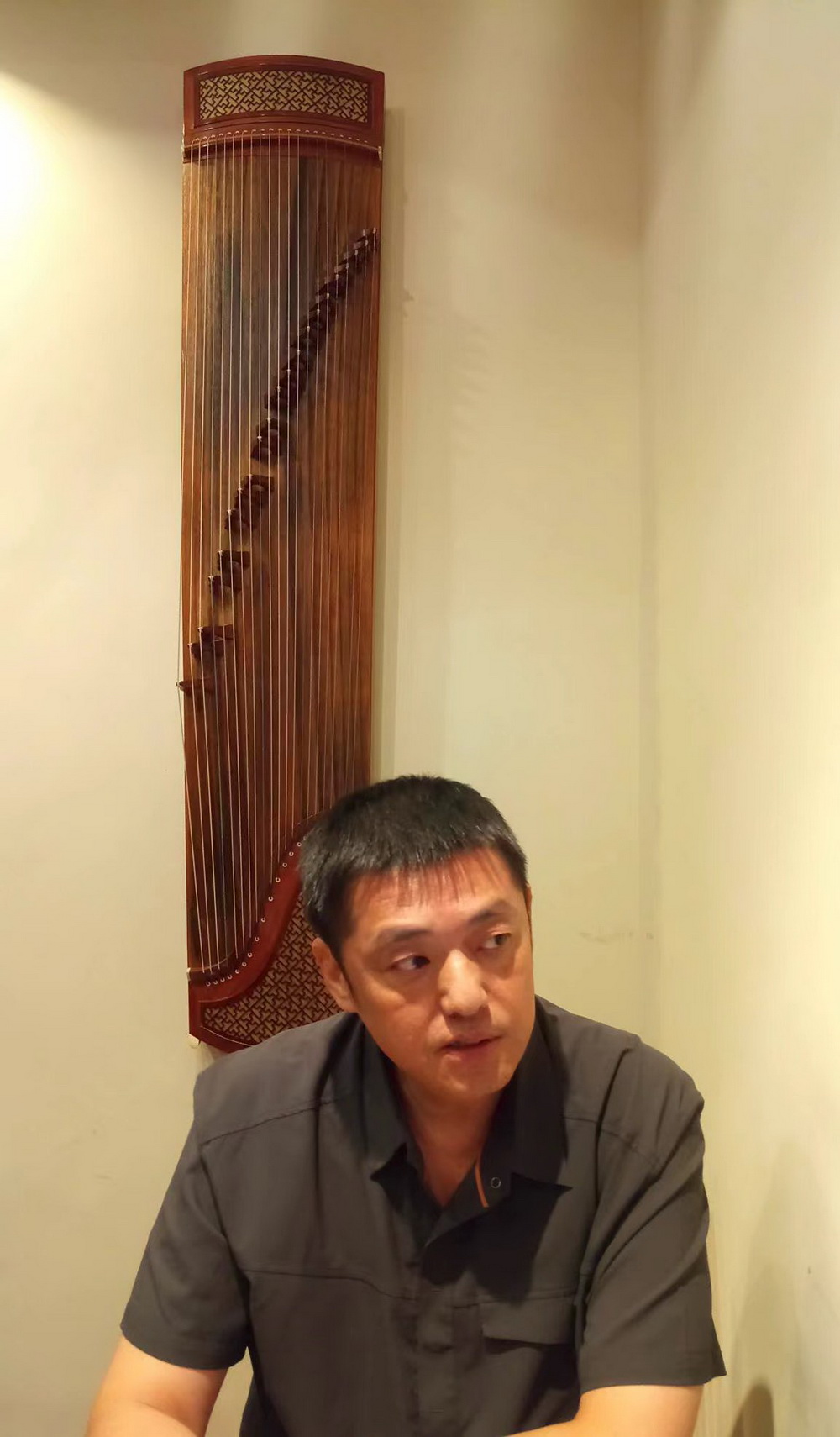
Lin Qiang: Thank you for your question, I have never thought about it this way. Will promise to do the soundtrack of a movie or documentary, which is also a kind of emotional projection. For this reason, I choose the way of music expression after accumulating various life in the past. In life, I often want to eat the food I used to like, or visit the school or the place where I was a soldier when I was young, but people's fame always feels more illusory.
The Paper: Hou Hsiao-hsien and Jia Zhangke, the directors you have worked with the most, are both good at filming life. There is a smell of dust in their work. You have lived a life that is full of texture and full of emotions. At your current age and state of life, do you still need to get into that life now and then?
Lin Qiang: You don't have to go in. I have always been in a place where the market is popular, and I am now.
The Paper: The choice of soundtrack work is similar to your personal viewing range, or is there a staggered part between the two? Do you watch non-realistic movies and books?
Lin Qiang: I don't pick up those who are too violent and erotic, and people may not like me. Maybe the magnetic field is different. I seldom watch movies now, but I often watch movies introduced by others on YouTube to learn about what movies are going on recently. I also watch commercial movies that I haven’t seen before, as well as the works of world film masters. See how others have introduced it and see his different angles. I rarely read movies related books.
The Paper: From your youth to the present, has the range of literary and artistic works that impress you changed or expanded, or is it the same as before?
Lin Qiang: When I was young, I liked to watch popular Hollywood sci-fi movies, such as "Star Wars", "ET" and "Close Encounters of the Third Kind"... I worked hard to watch European and American art films, but I often fell asleep when I couldn't understand it. When I saw a film directed by Hou or Zhang Yimou, I thought it was moving and good-looking, but I didn't know it was called a literary film. Most of the documentaries that have impressed me recently, such as "The Story of the City" directed by Zhang Nan, were composed by me.
The Paper: As a professional musician, do you often have music in your head? Or I was wrong, a lot of times it was silent instead.
Lin Qiang: No. There are often old songs, and I will sing a couple of them. And often sing wrong, can't remember the lyrics, just hum the melody. Most of the time, it's not silence, it should be cranky.
The Paper: Many interviews with you have focused on those so-called "critical life nodes", which are used to build your public image. Are those opportunities and achievements really the key to building your life? Are there other, more subtle events and moments that have shaped who you are today?
Lin Qiang: Of course, it is not just the information in the media that builds my life. What I have done, if I make up my mind and words, there must be a result in the future, it's just a matter of time.
The Paper: You have been making music. Did you choose music to express and make a living by some force, or did you choose music voluntarily? Does doing music make you more aware of your own existence and help you understand the outside world?
Lin Qiang: People have destiny, and people also have the ability to change their destiny, so they are called "Heaven, Earth and People" three talents. Human beings and heaven and earth are one body and complement each other. Any work or career can be either practice or study and reflection. If you save enough, you will see wisdom.
The Paper: What is music to you?
Lin Qiang: It is a part of life.
The Paper: You expressed your "harmonious" attitude towards life in your previous interviews, is that the same as your creative attitude? For example, when you see a clip of a movie that needs a soundtrack, or want to make your own music, will you be naughty and rebel against it and break the "harmony"?
Lin Qiang: Taoism says "circle on the outside and square on the inside", we live in the same dust as people and light, and we act in the middle way. Music art is the presentation of imagination, boundless and incredible, not resistance, but inherent.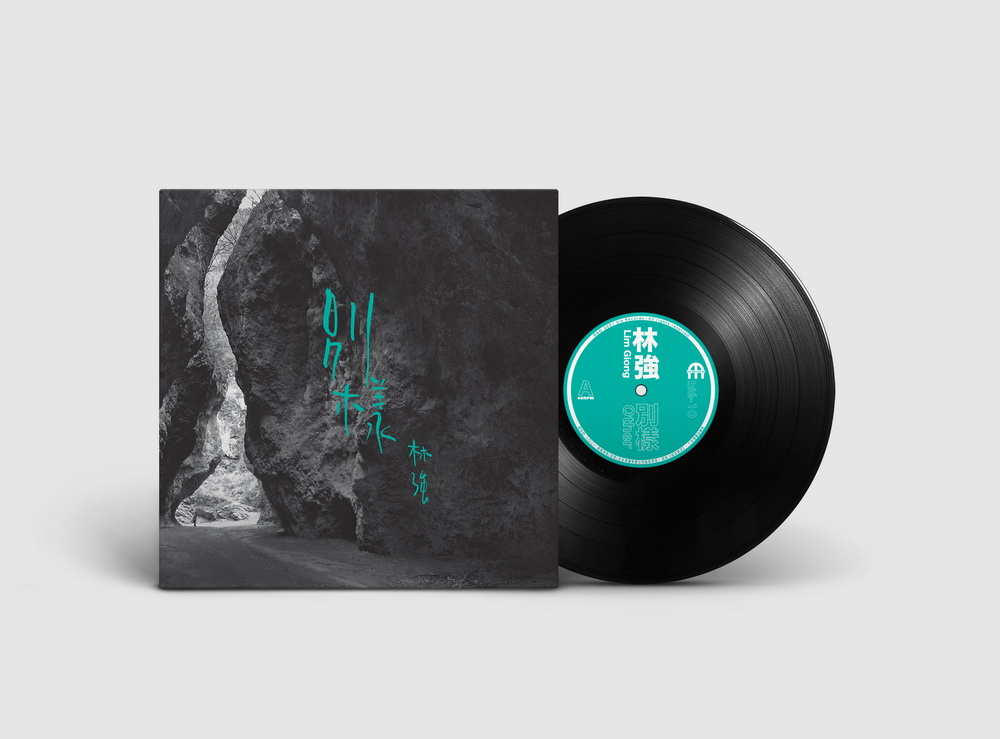

Lin Qiang "Go Forward"
Lin Qiang had the face of a Chinese male regardless of time and region. If he continues to be an actor, his screen career will be long. This face can go from a youth on a motorcycle to a fidgety middle-aged and gloomy old man, growing old under the gaze of the audience. It should be interesting to let time slowly wear this face through the screen. But he gave up the possibility of showing the passage of time under the camera and concentrated on being a "music worker".As a musician, Lin Qiang has an ability. His scores fall like new rain into the dust, sampling inflections from familiar situations, and melodies evoking deep memories. Lin Qiang is good at using electronic music, claiming that his logic is poor, and his music is mostly based on feeling. He does not insist on writing impressive themes, so that the audience will remember the scene from then on when they hear the music. If the movie is the reproduction of a dream, Lin Qiang's music makes the audience fall into the next level of dream, using crystallized phrases and ambiguous rhythms as clues to connect reality, memory and the subconscious world.
Lin Qiang does not have many personal musical works. Recently he released an electronic music EP called "Different", which consists of three pieces. "Water Wave Stone" takes place in milky white water, the arcs of the synthesizer sound waves are interlaced, the mussels in the underwater world open and close, and the swimming fish spit bubbles. "Moon Tour" lays on the loose rhythm of gudonggudong and has a random dream, like a random dream in the rapid eye movement period, with clear piano sounds flashing in the dream. "Overlapping" is like the beginning of a good story with a beginning and an end. However, when the narrator really tells the story, it is just toneless and meaningless, like the babble in a drama, it turns out to be another dream.

Lin Qiang Photography: Xian Kai
The Paper: What was the trigger for these music to start? Are they triggered by a certain inspiration, or the result of a period of deliberation?Lin Qiang: I was invited by a partner of "Other Music" and asked me if I would like to cooperate with their record label, bié Records. After I agreed, I started to think about how to do it, and also some musical ideas that I used to write memos.
The Paper: Your creations are created from scratch and completely reflect yourself. Do you resist this level of self-disclosure?
Lin Qiang: People's imaginations are diverse, revealing oneself is one of them, and it depends on one's own choice. Music comes from the heart and only reflects a certain part of me.
The Paper: People who have heard this work will have their own feelings, but it is difficult to express and discuss. When you made this music, did you think about communicating with the listeners and getting their feedback?
Lin Qiang: Of course it's good to have the opportunity to communicate, but I don't expect feedback from listeners. It's fine to meet and not talk about music, just life.
The Paper: What do you think you can tell listeners about this work, such as the description of emotions, the scene of creation, the source of some samples, or special creative techniques?
Lin Qiang: I have only started using hardware synthesizers in recent years. The basic structure of this piece is to use Elektron's Digitakt for arranging, and then go to the computer for fine-tuning. I also use my home Yueqin and Sanxian and my voice to record it on the computer. Do the mix again.
The Paper: For many people, this work is also "forgotten". I found a lot of things at the moment of listening, and the moment I pressed the stop button, they disappeared, maybe I went into the subconscious. For you, you will give it a specific image through the synaesthesia of the sound. , so that it can always exist and continue to grow?
Lin Qiang: I can't control other people's hearing. I'm very grateful to others if they want to hear it. As for whether it will continue to grow, that is the relationship between the work and others, I have no such intention or idea.
The Paper: Is there a fundamental difference between creating music for someone else's work and creating it yourself?
Lin Qiang: There will be a lot of compromises, communication and revisions for other people's music. Your own works will have early thinking, and then you can freely develop according to your own imagination.
The Paper: I don't know if you are willing to answer this question... Have you ever had a soundtrack that you felt was a failure? If so, why?
Lin Qiang: Yes, after listening to it after a few years, I find it difficult to listen to it. I shouldn't use that tone or be too contrived.
The Paper: Would you re-watch a movie with a soundtrack? Are there any works that come up with the idea of changing the soundtrack when you look back?
Lin Qiang: Yes, but it's too late! It's all been released, or made into DVD or on the Internet.
The Paper: From your first solo album to the present, in addition to the change in musical style, have you changed your creative philosophy? When you sense change is about to happen, what state are you in?
Lin Qiang: There must be, I hope there will be changes, but what will it become? Not sure myself.
The Paper: If you are used to expressing in music for a long time, will it degrade the ability to express in language and writing? Will the way of looking at things gradually tend to be more obscure and embrace the unknown way of making music?
Lin Qiang: It should be. It has not been expressed in words or words in the media for a long time. In the past, I often regretted saying the wrong thing. As a musician, I should express it in music. Music cannot be seen or touched, and its essence is abstract. Obscure or explore, is a choice.
The Paper: You said that you make music by feeling, and thinking logically is almost the same. Classical music is very logical, will you learn that logic out of curiosity, and then break through the inertial way?
Lin Qiang: No, there is still a lot to learn in life, such as changing my arrogant attitude.
The Paper: For you, do you think music is more of a transcendental experience, or is it an acquired tool that can be used to describe what you see and feel?
Lin Qiang: All right. I prefer to use music to cure my illnesses, such as being angry and angry, or having stomach pains, colds, fever, and dizziness. I tried once or twice, but it didn't work, so I had to take medicine.

Lin Qiang
The Paper: Music has the function of retaining memory. For example, Bi Gan invited you to compose the music for "Roadside Picnic", not only because he trusted your talent, but also because you were Lin Qiang, who sang Hokkien rock songs, and was the director Hou Hsiao-hsien he liked. 's royal soundtrack and used actors. You have those marks on your body. Some people live to old age in one of the most successful roles, and you change quickly, as if showing no nostalgia for the past. Or, what you don’t miss is just your past self, but your nostalgia for your past life is reflected in your choice of soundtrack artwork?Lin Qiang: Thank you for your question, I have never thought about it this way. Will promise to do the soundtrack of a movie or documentary, which is also a kind of emotional projection. For this reason, I choose the way of music expression after accumulating various life in the past. In life, I often want to eat the food I used to like, or visit the school or the place where I was a soldier when I was young, but people's fame always feels more illusory.
The Paper: Hou Hsiao-hsien and Jia Zhangke, the directors you have worked with the most, are both good at filming life. There is a smell of dust in their work. You have lived a life that is full of texture and full of emotions. At your current age and state of life, do you still need to get into that life now and then?
Lin Qiang: You don't have to go in. I have always been in a place where the market is popular, and I am now.
The Paper: The choice of soundtrack work is similar to your personal viewing range, or is there a staggered part between the two? Do you watch non-realistic movies and books?
Lin Qiang: I don't pick up those who are too violent and erotic, and people may not like me. Maybe the magnetic field is different. I seldom watch movies now, but I often watch movies introduced by others on YouTube to learn about what movies are going on recently. I also watch commercial movies that I haven’t seen before, as well as the works of world film masters. See how others have introduced it and see his different angles. I rarely read movies related books.
The Paper: From your youth to the present, has the range of literary and artistic works that impress you changed or expanded, or is it the same as before?
Lin Qiang: When I was young, I liked to watch popular Hollywood sci-fi movies, such as "Star Wars", "ET" and "Close Encounters of the Third Kind"... I worked hard to watch European and American art films, but I often fell asleep when I couldn't understand it. When I saw a film directed by Hou or Zhang Yimou, I thought it was moving and good-looking, but I didn't know it was called a literary film. Most of the documentaries that have impressed me recently, such as "The Story of the City" directed by Zhang Nan, were composed by me.
The Paper: As a professional musician, do you often have music in your head? Or I was wrong, a lot of times it was silent instead.
Lin Qiang: No. There are often old songs, and I will sing a couple of them. And often sing wrong, can't remember the lyrics, just hum the melody. Most of the time, it's not silence, it should be cranky.
The Paper: Many interviews with you have focused on those so-called "critical life nodes", which are used to build your public image. Are those opportunities and achievements really the key to building your life? Are there other, more subtle events and moments that have shaped who you are today?
Lin Qiang: Of course, it is not just the information in the media that builds my life. What I have done, if I make up my mind and words, there must be a result in the future, it's just a matter of time.
The Paper: You have been making music. Did you choose music to express and make a living by some force, or did you choose music voluntarily? Does doing music make you more aware of your own existence and help you understand the outside world?
Lin Qiang: People have destiny, and people also have the ability to change their destiny, so they are called "Heaven, Earth and People" three talents. Human beings and heaven and earth are one body and complement each other. Any work or career can be either practice or study and reflection. If you save enough, you will see wisdom.
The Paper: What is music to you?
Lin Qiang: It is a part of life.
The Paper: You expressed your "harmonious" attitude towards life in your previous interviews, is that the same as your creative attitude? For example, when you see a clip of a movie that needs a soundtrack, or want to make your own music, will you be naughty and rebel against it and break the "harmony"?
Lin Qiang: Taoism says "circle on the outside and square on the inside", we live in the same dust as people and light, and we act in the middle way. Music art is the presentation of imagination, boundless and incredible, not resistance, but inherent.

EP "Different"
Related Posts